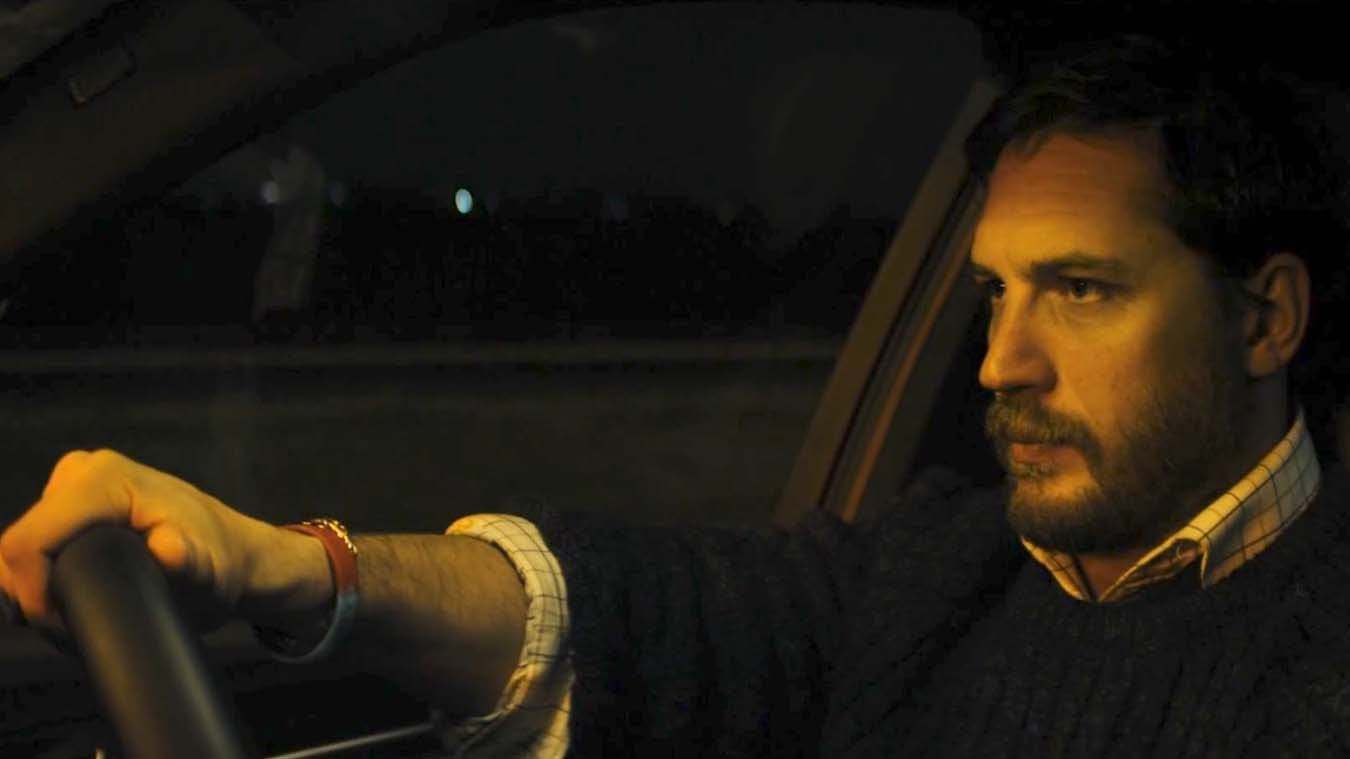Complexity is stimulating. It invites the audience to sharpen their attention and focus on the details of the story. When it comes to character motivation, complexity can also be thought provoking – it questions viewers’ too comfortable and idealized interpretations of human behavior. The script aquires psychological depth.
This is what happens in Locke.
On the one hand, the story is simple. At the beginning, Ivan Locke makes a decision, and the rest of the movie is about being faithful to that choice.
[spoilers follow]
As a consequence of a one-night stand, a woman Ivan doesn’t love or know is going to give birth to his son. But Ivan will not be like his father. He won’t escape from his responsibilities like his father did when Ivan was born in similar circumstances. He will drive through the night – two hours on the motorway – to be there and recognize the baby.
The plot is a series of dramatic phone calls behind the wheel of the car. To be at the hospital in time, Ivan can’t be at the yard to supervise the meticulous preparations of the huge concrete pour he is in charge of. Despite being fired and substituted, Ivan doesn’t stop to care. It is his duty. He laboriously keeps on giving orders to his subordinates via phone.
Moreover, Ivan confesses his unaware wife what is happening and what he is going to do. He made a mistake and he will face the consequences, included the family crisis he has just set off.
Everything is complicated by the calls of the woman in labor, terrorized, from the hospital.
All of this makes Ivan Locke a positive character. Screenwriter-director Steven Knight says:
“Once he’s made that decision he’s not going to change his mind. Everything bounces off him because he is so determined. It makes him a very unusual and noble kind of hero.”
Yet, the frame is more complex. In some passages, the script efficaciously suggests the doubt that in Ivan’s motivation there’s more than sense of responsibility. You feel his resentful obstinacy in wanting to prove something to his dead father and himself. You feel an excessive and illusive ambition of being able to control and fix everything.
Here is how Knight explains it:
“He does what he says he would do. He goes down to and he takes responsibility, which his dad never did. And, you know… you could see that as a noble, heroic thing to do. But you could also argue, he’s doing this whole thing to prove something to himself, and to his father. And he’s that selfish.”
When at one point things seem to improve (at the yard everything is in order and Ivan believes to have a chance at being forgiven by his wife), the man appears to be too satisfied with his problem solving attitude, epitomized by the recurrent line: “I want to move onto the practical next step” (he used this line – not a very sensible one – while trying to calm down his wife).
Later on, Ivan hurts the mother of his children, who is already out of herself, telling her he urgently has to call the yard and needs her to give him a phone number he forgot at home. Isn’t it talking about their marriage more important? Can’t anybody else handle the pouring? The woman decides it’s over.
At the end, Ivan won’t have his previous life back. He will lose everything. Yet, hearing the newborn son crying on the phone makes him realize that a good thing has happened despite his failings in dominating reality through reason.
It is interesting the way Knight depicts the main character arch as liberation from the illusion of control:
“There are things you can’t control that can be good. And can be beautiful, and it’s like the opposite of what Locke – whose name is a reference to John Locke, the philosopher who was a rationalist who believed one can find reason with everything – believed … That you could control everything. And it’s sort of … this is an examination of that Lockean principle.”
In another interview, Knight emphasizes the same point:
“I wanted him, when he arrives at the other end with nothing, to realize the one thing he’d done that was a mistake, the irrational thing, has led to that moment where he hears a baby crying. That “mistake” has made something that’s better than even the building he’s so in love with, which is made out of concrete and reason. I think he arrives changed, realizing, out of the stupidity, chaos and daft things that human beings do, comes the next generation.”
Like in the case of Locke, complex motivations make you want to watch a movie for a second time, and even more. To notice and better appreciate the psychological nuances of the character.


Be First to Comment